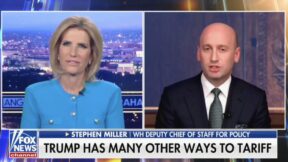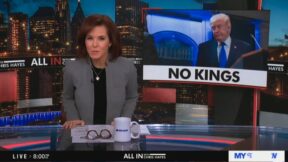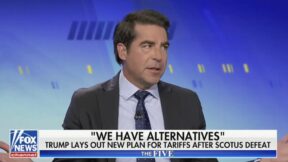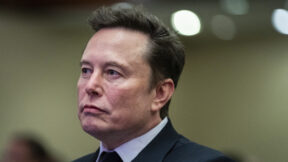Ben Carson Says ‘Someone Has Got to Explain’ Why Georgia Voting Laws are Restrictive Minutes After CNBC Host Does Just That
Minutes after CNBC’s Andrew Sorkin detailed why Georgia’s new laws make voting more difficult, Dr. Ben Carson said he’s “yet to have somebody explain” how “rules that are there to codify early voting and make sure that ID requirements are met” are restrictive.
Sorkin read from a Microsoft memo that found that “in Fulton county — putting aside the issues of ID — just straight up in Fulton county where most Microsoft employees live, likely would see an 80 percent reduction in drop boxes from 40 during the 2020 election, to only about eight moving forward.”
He added that the window in which one could obtain an absentee ballot is cut “effectively in half,” before noting that hundreds of companies and CEOS signed a letter condemning the laws last week, including Walmart CEO Doug McMillon who said there are aspects of the laws that are “politically motivated.”
Carson responded that you have to “look at the facts” and questioned why the number of those voting was increasing. “It really makes you wonder about that and what about their values to say it’s opposed to their values — what about the value about interstate travel which is guaranteed to American citizens and they don’t protest the fact that the government requires a photo ID in order to do interstate travel, so why would you be against photo ID?”
Sorkin then asked what he would tell Black Americans who signed the letter condemning the laws, including Merck CEO Kenneth Frazier and former American Express CEO Kenneth Chenault.
“I tell them to be objective,” Carson said before Sorkin cut in and asked, “you think that Black Americans throughout the country don’t understand the laws themselves?”
Carson then went on to compare restrictions for voting in stakeholder elections to Georgia’s election.
“Only the people who are present and entitled to vote are allowed to vote,” he said. “They have registration lists voter registration lists for Delta that closed on April 30th, 2020 for an election on June the 18th, so why are they opposed to a time frame when in their very own elections they have one?”
Sorkin and Carson went back and forth a little over the comparison, with Sorkin saying they weren’t disagreeing but democracy was a different issue.
“Dr. Carson, I don’t think anyone is disagreeing. We do need rules, I don’t think those 700 executives or 700 companies and executives who signed a letter are against rules,” Sorkin said. “I think the goal is, how do you make sure that as many people as possible can vote and create opportunities for people to vote, rather than create restrictions for people to vote, especially when it appears to be politically motivated and targeted.”
Then Carson, seemingly forgetting the memo Sorkin read from that explained why the new laws could restrict early voting, replied that “someone has got to explain” how the rules limit access.
“I’ve yet to have somebody explain to me how those rules that are there to codify early voting and make sure that ID requirements are met, how are those restricting people from voting? ” he said.
The bill has received strong criticism from voting rights activists and many Democrats, including President Joe Biden, but Republican proponents of the bill insist it actually expands access to voting.
According to the Washington Post, it does a little of both: cutting the timeframe to request a mail-in ballot from six months before Election Day to 78 days before; blocking counties from sending mail-in ballots to every registered voter (it must be requested); implementing new voter ID requirements; limiting drop boxes; and banning the distribution of food or water within 150 feet of a polling place.
The few ways, the Washington Post noted, that the bill may expand voting, include mandating a minimum number of drop boxes, which may increase access in rural counties; adding an additional day of early voting in most rural counties; and requiring measures aimed at limiting poll lines to less than an hour wait.
Watch above via CNBC.
New: The Mediaite One-Sheet "Newsletter of Newsletters"
Your daily summary and analysis of what the many, many media newsletters are saying and reporting. Subscribe now!






Comments
↓ Scroll down for comments ↓